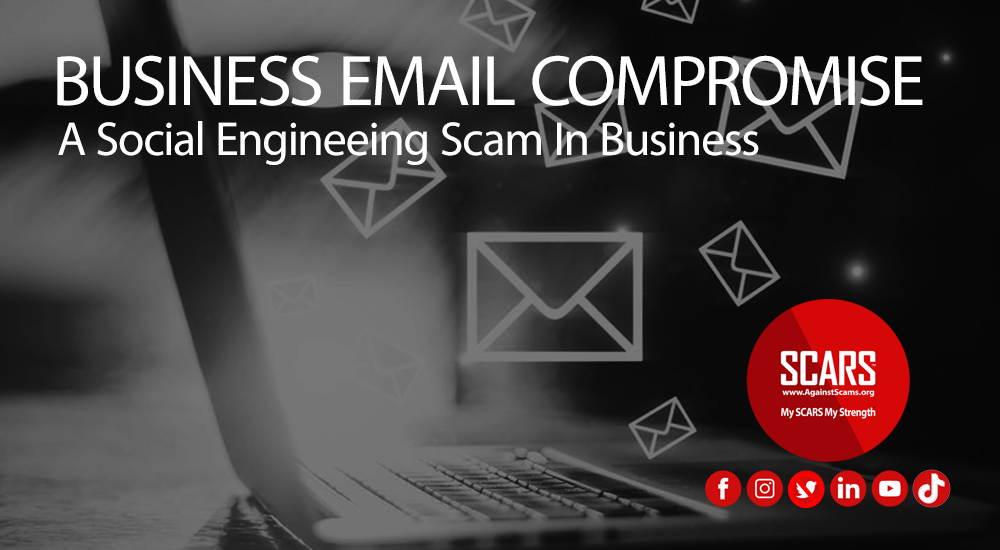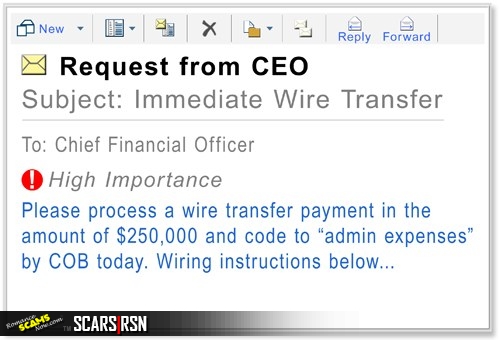Business E-Mail Compromise Scam Warning
Across The World, Businesses Are Losing Over USD$100,000,000,000 A Year In BEC Scams
This is also 100% preventable with basic knowledge and safeguards
FBI Warns American Business Owners of Business E-Mail Compromise Scam
FBI Has Important Information For Area Business Owners Who Find Themselves The Victim Of A Business E-Mail Compromise Scam (BEC also known as CEO Scams).
This sophisticated financial fraud targets businesses of all types, especially those who regularly perform wire transfers. In addition to using spoofed e-mail accounts, the actors often compromise valid business e-mail accounts through social engineering or computer intrusion techniques to initiate wire transfers on the criminal’s behalf.
Over the last two years, the FBI’s Internet Crime Complaint Center (IC3.gov) has seen a 2,370% increase in actual and attempted BEC losses, affecting businesses in all 50 states and 131 countries. Since October 2013, those losses total well over $5 billion in the Chicago area alone. Some estimates are that this is over US$100 billion annually (2021).
Tip #1: Know Who to Contact
Business owners who believe they have been caught up in a BEC scam should always contact their bank immediately. The next step is to contact law enforcement. Investigators say that deciding which law enforcement agency to contact in this situation can be confusing.
Each FBI Field office is home to a Business E-mail Compromise Task Force for that area. These local task forces are a joint effort between the FBI, United States Postal Inspection Service, Federal Housing Finance Agency, Local Police Departments, US Treasury Department, US Homeland Security Investigations, Office of Labor Racketeering and Fraud Investigations, and the Board of Governors of the Federal Reserve System Consumer Financial Protection Bureau. They were established in November 2016 to assist regional businesses facing the BEC threat.
Tip #2: Know How to Make Contact
Sending an email to BEC@ic.fbi.gov is the best and easiest way to contact the BEC task force. In your message, include the following:
- Date of the incident
- Summary of the incident
- Victim name
- Victim location (city, state)
- Victim bank name
- Victim bank account number
- Beneficiary name
- Beneficiary account number
- Beneficiary bank location
- Intermediary bank name
- SWIFT/IBAN number
- Date of transaction
- Amount of transaction
- Copies of e-mails, to include header information
Tip #3: Know When to Make Contact
Investigators say it is critical to contact law enforcement as soon as possible. In order to provide the best opportunity for the recovery of your funds, the BEC Task Force must be in a position to take action within 72 hours of the money leaving your account via a wire transfer.
Since its formation, the FBI BEC Task Force has stopped millions of dollars in wire transfers from being completed by cybercriminals.
More
TAGS: SCARS, Information About Scams, Anti-Scam, Scams, Scammers, Fraudsters, Cybercrime, Crybercriminals, Scam Victims, Online Fraud, Online Crime Is Real Crime, Scam Avoidance, BEC Scams, Business Fraud, Business Email Compromise Scams
PLEASE SHARE OUR ARTICLES WITH YOUR FRIENDS & FAMILY
HELP OTHERS STAY SAFE ONLINE – YOUR KNOWLEDGE CAN MAKE THE DIFFERENCE!
THE NEXT VICTIM MIGHT BE YOUR OWN FAMILY MEMBER OR BEST FRIEND!
By the SCARS™ Editorial Team
Society of Citizens Against Relationship Scams Inc.
A Worldwide Crime Victims Assistance & Crime Prevention Nonprofit Organization Headquartered In Miami Florida USA & Monterrey NL Mexico, with Partners In More Than 60 Countries
To Learn More, Volunteer, or Donate Visit: www.AgainstScams.org
Contact Us: Contact@AgainstScams.org




![business-email-compromise-timeline-022717[1]](https://romancescamsnow.com/wp-content/uploads/2021/02/business-email-compromise-timeline-0227171.jpg)

Leave A Comment